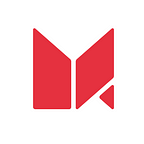8 Books To Finish The Year Strong
We are already in the final third of 2020. Time for one last push!
by Sebastian Mueller, Chief Operating Officer at MING Labs
This year has been unprecedented in many regards. One emerging legacy: The further catalyzation of Digital Transformation. Wherever you look, corporations are increasing the speed at which they are moving to the next.
Previous barriers, mostly mental barriers, have been overcome — making way for the adoption of new habits at scale.
However, this drive, which offers many opportunities to rethink things, also needs to be fueled by new thoughts. That’s where peer exchange, experimentation, and reading come in. At MING Labs, we love to read and regularly devour slews of books in the search for new insight.
Here we want to share some of the most impactful reads we have picked up in 2020 so far. It is a broad range across various topics, yet the themes of change and transformation connect them all. From ways to reframe problems, to new mindsets and behaviors, and next-generation paradigms; we got you covered.
1 — What’s Your Problem?
by Thomas Wedell-Wedellsborg
Einstein is supposed to have said: “If I had an hour to solve a problem, I’d spend 55 minutes thinking about the problem and five minutes thinking about solutions.” The framing of a problem is the key to solving it well. “What’s Your Problem?” explores that theme in a lot of detail, leaving the reader with many practical tips and tools to apply easily. The presented methods, while often seemingly simple, are very powerful indeed.
2 — The Design of Everyday Things
by Donald A. Norman
While increasing attention is being paid to design, many still see the outcome of design as the shape of an object or product. Design is so much more than that. In his classic “The Design of Everyday Things,” Don Norman explores the basic principles of great design — as well as the mistakes often present in objects that violate them. A great read full of wit and insight as relevant today as when it was written over 30 years ago.
3 — Good Strategy Bad Strategy
by Richard P. Rumelt
Everyone always talks about strategy. Activities that are labeled as “strategic” appear to be of higher esteem and value. Yet, what does the word “strategy” actually mean? What is a good strategy, and how do we arrive at it? This is precisely what “Good Strategy Bad Strategy” is all about — a masterclass in strategy development. The writing is very accessible, unlike many other books about strategy, and applications are straightforward. This book should be a staple in the corporate world.
4 — Thinking in Bets
by Annie Duke
While the pace of change keeps accelerating, it also seems that the future is becoming increasingly uncertain. Extrapolations from current status hardly hold, and predictions always seem off. How can we think about taming this uncertainty, ambiguity, volatility, and complexity? By thinking like a poker player. Getting a practical intuition for probabilities and thinking in them, rather than certainties can help us develop portfolio approaches that foster progress — an essential concept for anyone in innovation or transformation.
5 — Never Split The Difference
by Chris Voss
Transforming an organization is also first and foremost about change management. Nothing will happen if people are not along for the journey. Within large corporations, this often means negotiating with peers, convincing higher-ups, and forming alliances. “Never Split The Difference” is a great and practical read on negotiation that can help you keep your calm in heated situations. The practical wisdom in this book will help you create more Win-Win situations and succeed more often on the journey.
6 — Upstream
by Dan Heath
The need for change is often recognized when problems occur. Addressing those problems where they become visible is a downstream effort, which addresses the symptom. Yet if we really want to transform, our intervention needs to be staged upstream — to prevent problems from occurring in the first place. That takes a different way to think about the system, yet for a much larger pay-off down the road. “Upstream” shows how you can rethink your approach and improve outcomes.
7 — Narrative Economics
by Robert J. Shiller
As humans, we connect very well with stories. And not only do stories help us convey information, but stories are often part of belief systems, for example, also within our economies. Popular stories dominate the headlines and minds of the time, drive collective action, and explain many phenomena in macro- and microeconomics. How are such meta stories influencing your organization, and how can you leverage their force for your transformation?
8 — Cradle to Cradle
by William McDonough and Michael Braungart
One of the major headlines of 2020 has been the push for sustainability. With our collective minds open and primed for change, it is time to rethink our economic and societal systems more radically. “Cradle to Cradle,” in the Circular Economic spirit, offers both very practical ways to think about that and a greater philosophy to drive thoughts and actions. Decades of applied wisdom are condensed in one informative read, which can get you started on your Circular Transformation journey.
Sebastian Mueller is Chief Operating Officer at MING Labs.
MING Labs is a leading digital business builder located in Berlin, Munich, New York City, Shanghai, Suzhou, and Singapore. We guide clients in designing their businesses for the future, ensuring they are leaders in the field of innovation. For more information, visit us at minglabs.com
Liked this story, and curious to know more? Start a conversation with us on Twitter, check our latest updates on LinkedIn, or drop us a note at hello@minglabs.com.
Related Reading: Rethink Work With These Books
